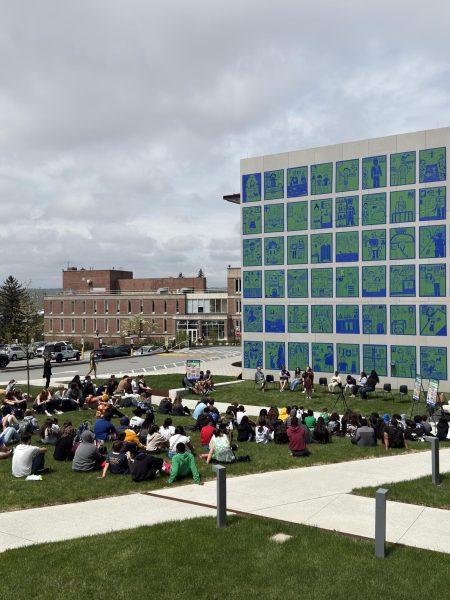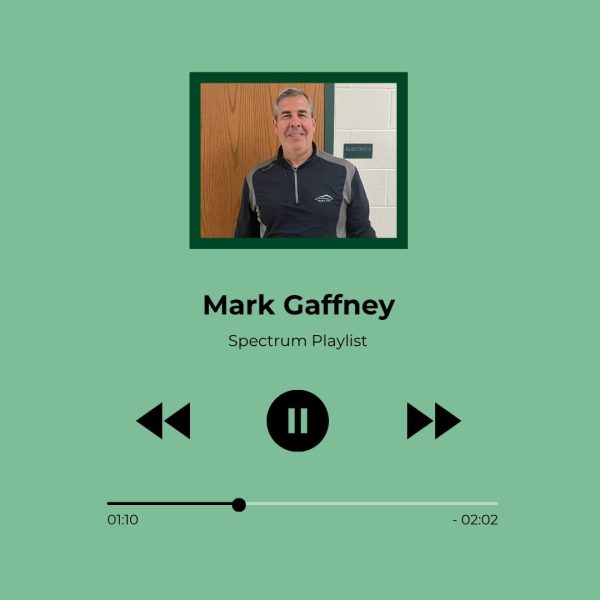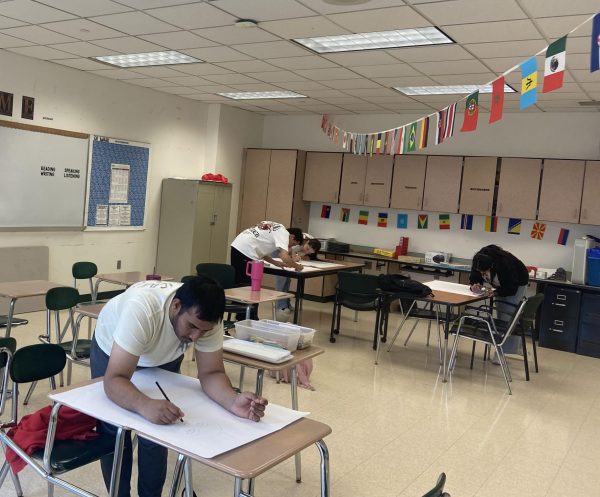Snow Days: Before she tweets
DURING THE TYPICAL New England winter, snow is a promise, not a threat. The only question is when, and this is a question that schools give a lot of thought to.
Students who need to wait for busses are out of luck when it would take an industrial-strength heater to keep the chill off, and busses themselves face unforgiving driving that simply isn’t worth the risk.
All students are familiar with attendance being held for a bus that had an issue getting to school, and potentially dangerous hiccups like this weigh on the minds of the people who decide if school should be delayed, cancelled, or if the show should go on.
Superintendent Bonny Gifford, a tweet from whom is enough to make a student’s day, is foremost among these people for the Dartmouth Public Schools. She does consult with other people including the District’s Head of Maintenance, who drives around to assess the roads, and the Director of Finance and Facilities, who communicates with the bus company, but at the end of the day, she says, “The decision remains with me.”
It is part of her office, and superintendents joke that this is the most stressful part of the job. Superintendents do not bear the stress alone, though, and have a group chat where they share their thoughts. Weather can vary between towns, but historically “we have had pretty much the same idea whether to delay or cancel,” Dr. Gifford said.
It is easy to see where the stress would lie, as this decision shapes the day for thousands of people across the schools. Throughout the snow season, the forecast is analyzed well in advance to watch out for trouble, but the forecast is not always entirely accurate.
Sometimes, Dr. Gifford has made calls based off the forecast, only for the weather to play out in an entirely different way, an experience she calls “unsettling.”
Whenever she is unable to safely call a snow day during the evening, the decision making process begins bright and early at 4 am the next morning, with the weather being watched and town staff riding around town to check on the state of the roads.
As is often stated during Dr. Gifford’s much-beloved tweets, dangerous roads are the main cause for any change from a routine day. If snow were to happen at night, the Department of Public Works has plenty of time to clear the roads for school the next morning, but a continuous, overnight snow is more difficult to handle, and sometimes the roads are too slick and icy to safely drive on, even if they have been cleared.
Reflective of the Information Age spreading of news, Dr. Gifford’s Twitter is the way many students learn of a change. Dr. Gifford is “pleased” that getting announcements directly from the Superintendent’s Twitter makes students feel a “connection to the office”, and indeed these tweets are by far the most well liked/retweeted ones on her account.
Many students love their superintendent because they see the snow days as coming directly from her, and students have been known to describe her using friendly-but-unofficial titles they probably would not use were they talking to her.
One student thanked her for the snow days, and another praised her use of Twitter, but students also raised concerns about when we did and did not have snow days. Multiple students mentioned this year’s first snowfall, when school was not cancelled, and some students who drove got into minor accidents.
“That would’ve been a perfect day for a snow day or even a delay,” one junior pointed out, and said that not having one “endangered students.”
Student learning is also endangered when school goes on during potentially hazardous conditions. Some students may choose to stay home during times like that, and as opposed to snow days, when every student misses class, only individuals who stay home fall behind. According to Joshua Goodman with educationnext.org, these absences are more detrimental to students’ learning and test scores than snow day absences.
As stated previously, Dr. Gifford does not have a way to infallibly make weather-based decisions, but the danger always remains that someone could be hurt based on a wrong call.
Thankfully, Dr. Gifford is the only one who has to worry about making such a stressful decision.
School for students is set to let out on Monday, June 18, and for teachers the date is Tuesday the 19th.











